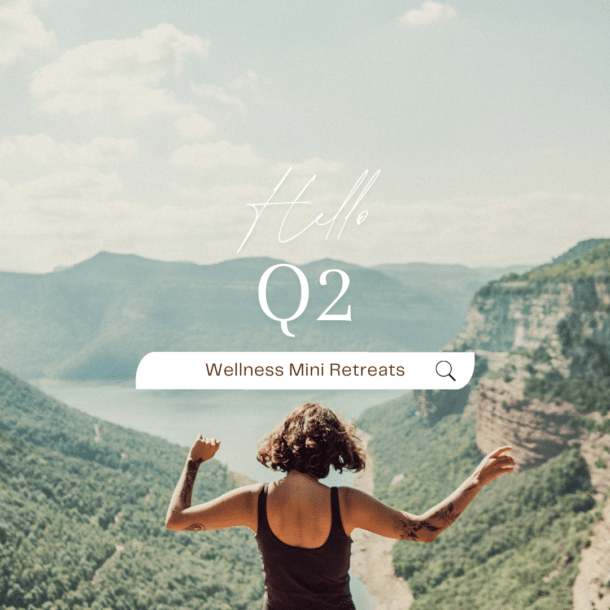A science based framework for managing stress.
Stress is a leading cause of disease. It surfaced in my research into autoimmune diseases which is why I needed to do a deeper dive. What resulted are the scientific insights needed to develop the simple rules for thriving even when stressed.
You’ve likely heard many of the findings before as tips to improve your health. I’ve written about stress management practices too but no one has connected the dots to explain how the findings work together to achieve lasting results.
Three simple rules for thriving even when stressed
1/ Reframe your perception of stress
You’ve probably used the expression, “I am stressed out” at one time or another in your life. Most people have because stress is a biological response to a real or perceived threat. Stress is just your body rising to the challenge of the threat.
The problem according to Kelly McGonigal PhD, physiologist and Stanford researcher is that we’ve been conditioned to think stress is bad. Your negative perception of stress is creating a more severe biological response which increases your stress related health risks.
That’s why you need to reframe how you think about stress. When you feel stressed, acknowledge the feeling and take comfort in knowing your body is doing what it’s designed to do. If you feel the urge to reach out to your support network, do it.
During stressful events, your body also releases a neurohormone called Oxytocin [aka: the cuddle hormone] that helps you strengthen close connections. Connecting with your friends, family and broader community to offer and receive support will help you recover faster and make you more resilient.
2/ Modify your diet to facilitate your circadian rhythm
There are a number of studies underway to better understand the details of the circadian rhythm because it plays such an important role in your health.
Researchers have discovered that anything that alters your natural wake sleep cycle such as artificial light, shift work and jet lag, impairs your daily rhythms in physiology, metabolism and behavior. When your rhythms break down, your risk for a wide range of disease and disorders increase.
“Taken together, circadian rhythms in humans are regulated by a complex multilevel circadian oscillator system that undoubtedly provides an advantage for human health and is essential for maintaining proper metabolic control. However, this system becomes disadvantageous when lifestyle factors impose time constraints that produce circadian disruption — misalignment between internal circadian oscillators and the external environment. ~ Dr. Aleksey Matveyenko, Mayo Clinic
Think of your circadian rhythm as a large scheduling system. Everything you do to manage your health has to be properly scheduled to flow with your natural wake sleep cycle. It might sound like a daunting task but it’s not that hard to do.
For instance, Salk Institute researchers recommend creating a 10 hour eating window that fits with your lifestyle. Limiting your food intake to a 10 hour period gives your body sufficient time to use the food you consumed. Doing that one thing has helped study participants shed pounds and maintain their Weightloss. To achieve those results, you have to use the same eating window 7 days per week for it to work.
3/ Use simple rules to develop your survival kit
Don’t wait until your stressed out to create your rules. Dr. Annika recommends creating a stress survival kit that allows you to transition from chaos to calm when you’re feeling stressed out. She uses the acronym SEE [Sleep, Eat and Exercise] as a framework for her survival kit.
Sample stress survival kit:
Sleep, eat and exercise to transition from chaos to calm.
1/ Sleep: Develop a routine that enables you to get 7-9 hours of sleep every night so that your body has time to remove waste and make repairs. A disturbed sleeping pattern may be an early sign of stress.
2/ Eat: Forget about counting calories or sticking to a fad diet. Eat at least three colors of fruit and vegetables per day to get sufficient antioxidants, keep your eye on serving sizes by using a regular plate and only enjoy one helping.
3/ Exercise: Movement is medicine for your body. Daily exercise reduces blood pressure, moderates blood sugar, relieves achy joints and depression. If you’re feeling stuck, go for a brisk walk. Physical activity also enhances brain activity needed for problem solving.
The sample stress survival kit below is a good start but to be effective the rules have to meaningful to you. Take some time to tweak them or craft your own.
Chase meaning rather than avoiding discomfort
Create a plan that will help you develop new habits to realize what you want in live. In other words, chase meaning rather than trying to avoid discomfort.
Contact Us
We're interested in partnerships with brands that share our interests and values.
Create a Free Account
Receive weekly emails with workouts, tips & offers to help you live more vibrantly.



